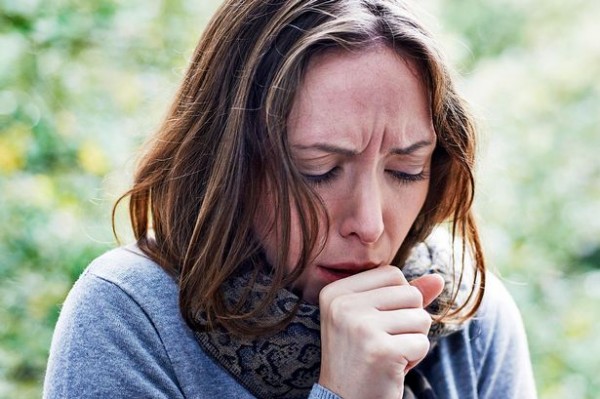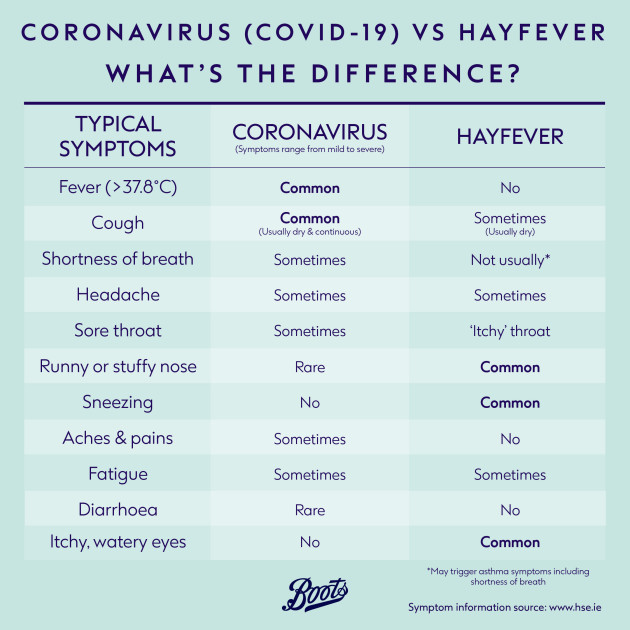
Hayfever or Coronavirus? Expert reveals the difference
Is anyone else freaking themselves out over the slightest sniffle or tickle in your throat? The Covid-19 pandemic has us all on edge and being aware of the symptoms is essential.
With pollen levels set to increase this month hayfever sufferers will begin to face the sniffles and now more than ever it’s important to know the difference between common hayfever symptoms and those that could be a sign of Coronavirus, so you can take the right steps to feeling better.
Boots Pharmacist Heather Feeney shares her advice on knowing the difference between hayfever and Coronavirus and provides her top tips on how to manage your hayfever symptoms, so you can make the most of being out in your garden or getting your daily dose of exercise this Spring.

“Hayfever symptoms are different to Coronavirus. The most common symptoms of Coronavirus are a high temperature and / or a new continuous cough. Hayfever doesn’t cause a high temperature and most people don’t feel unwell. While our knowledge of Coronavirus is still evolving it appears that sneezing is not a symptom and it's rare to have a runny or stuffy nose.
“There are lots of hayfever relief products out there, so if one type of medication isn’t working for you, consider swapping to another. If you’re looking for help choosing, your local Boots pharmacy team will be able to suggest alternatives,” commented Feeney.

"Typical hayfever symptoms include sneezing, a runny or blocked nose, itchy red watery eyes or an itchy throat, mouth, nose and ears. Here are my top tips to help ease hayfever symptoms:
First up, daily prevention:
– Try applying Vaseline to the inside of your nose, it works as a barrier and can trap pollen before breathing it in.
– When you’re in and out of the garden, wear wraparound sunglasses to help prevent pollen from getting in and irritating your eyes.
– After spending time outdoors, try and make time to have a shower to wash away any stray pollen on your hair and skin, and put all clothes straight in the wash.
– Avoid hanging your washing outside as the pollen in the air can cling to your clean clothes and linger on the materials.
– Met Éireann is your friend – Keep your eye on the Met Éireann website daily so you can monitor the pollen forecast.






